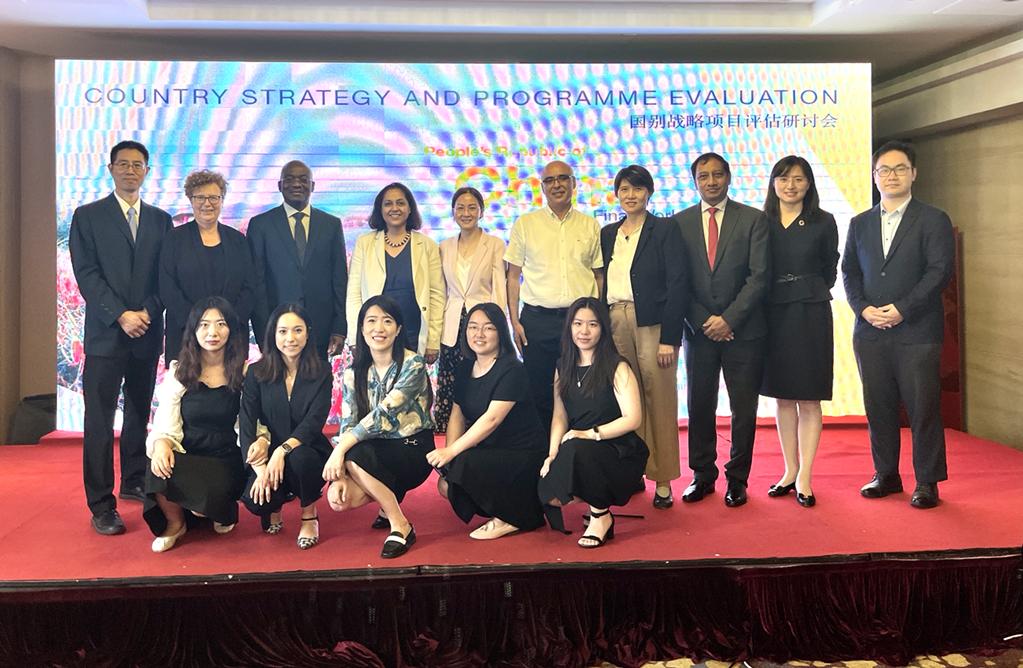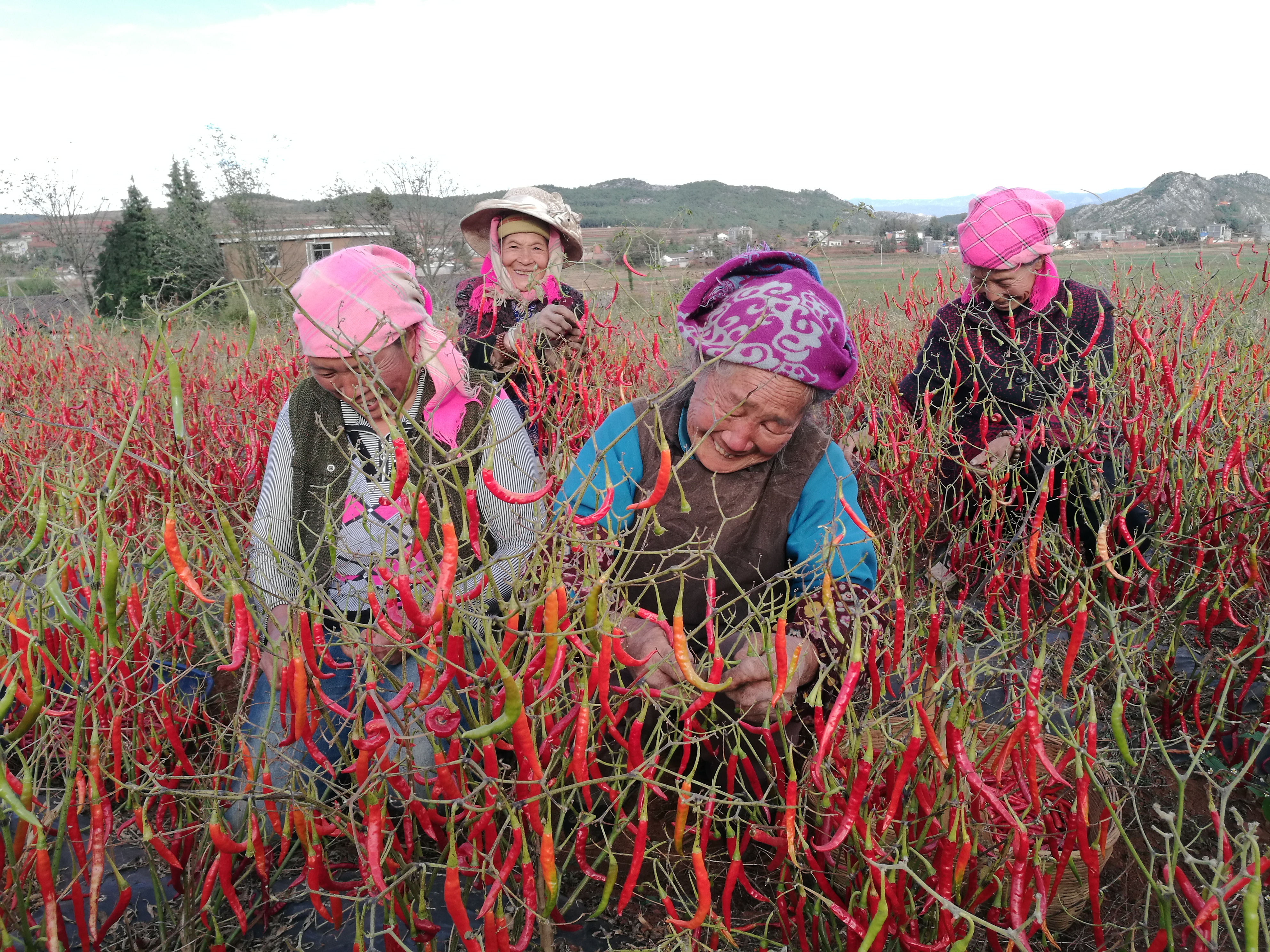Strong IFAD-China partnership contributes effective rural poverty reduction - IOE
Beijing, 28 June 2023 – “The Country Strategy and Programme Evaluation (CSPE) highlights the pivotal role of the Government’s leadership and the substantive support that it has made to the IFAD country programme. This has enabled the IFAD-supported projects to make an effective contribution to the reduction of rural poverty at local levels”, stated Dr Indran A. Naidoo, Director of the Independent Office of Evaluation of IFAD (IOE), in his opening statement during the People’s Republic of China CSPE final workshop, on 28 June 2023.
The Ministry of Finance of the People’s Republic of China and IOE hosted the event jointly, supported by the IFAD Country Office in Beijing. The workshop was held in-person, in China, and brought together a wealth of high-level attendants, such as Mr Lu Jin and Ms Liu Fang, Deputy Director Generals of the Department of International Economic and Financial Cooperation, in the Ministry of Finance. Over eighty participants joined the workshop, from across thirteen different provinces, including Shanxi province, Inner Mongolia, Jiangxi, Heilongjiang, Henan, Hubei, Hunan, Guangxi, Sichuan, Yunnan, Shaanxi, Qinghai and Ningxia provinces. Institutions represented featured the Ministry of Finance, the Ministry of Agriculture and Rural Affairs, the Ministry of Ecology and Environment, partner ministries and agencies, the IFAD Asia and Pacific Division, and the IFAD External Relations and Governance Department. A host of development and private sector partners, civil society organisations and academic institutions also attended, including the College of International Development and Global Agriculture of the China Agricultural University, represented by Ms Xu Jin, Associate Professor and Assistant Dean.

During the workshop, participants discussed the main findings, recommendations and issues emerging from the CSPE. The meeting also provided an opportunity to focus on the opportunities and challenges of the partnership between IFAD and the Government in the near future, and discuss strategic priorities for IFAD's upcoming programme.
“IFAD’s support to China’s efforts on poverty reduction was relevant, and has yielded positive results. The programme has been in line with the programmatic priorities of government policies and plans, with a focus on improving the position of the rural poor in value chains”, explained Dr Johanna Pennarz, IOE Lead Evaluation Officer, and lead author of the CSPE.
The CSPE is the second country-level evaluation conducted in China. It covers the period from 2014, when IOE conducted its first country programme evaluation, until 2021. The portfolio for the CSPE period includes 14 projects of which four are still ongoing. The reviewed portfolio of loans is worth USD 1.786 billion, which includes USD 674 million of IFAD financing. The evaluation assessed the overall strategy pursued, implicit and explicit, and explored the synergies and interlinkages between different elements of the country strategy and programme, the extent to which the lending and non-lending portfolio contributed to the achievement of the strategy, and the role played by the Government and IFAD.
Initial deliberations touched upon on the main challenges for the transition to value-chain approaches and for cooperative development, and how they could be overcome. In this regard, participants recognized that inclusive value chains are an important theme for China and IFAD, and some promising approaches have been introduced already. Projects have piloted practices to ensure that smallholder farmers, women and youth can benefit from cooperative membership and participate in profitable agricultural value chains. However, the introduction of value-chain approaches has led to project performance plateauing.
Participants also focused on how IFAD should respond to the changing context of rural development in China. These include the rapid economic development and the unprecedented reduction of rural poverty in the country. This created a positive context for the IFAD-supported projects targeting the rural poor.
The event also offered an opportunity to delve into select issues emerging from the CSPE that could influence IFAD’s next country strategic opportunities programme (COSOP), which will begin in 2024. In the context of natural resource management and climate change, participants looked at the Government’s related priorities that IFAD should consider for the support of resilient rural livelihoods. In the past IFAD has made successful contributions to sustainable resource management, as confirmed by an earlier IOE evaluation in Qinghai province. The ongoing projects already include approximately USD 60 million of climate finance. In the future, these types of investments would need to make a visible contribution to sustainable land and water management and climate-smart agricultural practices.
In the context of strategic partnerships to enhance innovation, scaling-up and south-south and triangular cooperation (SSTC), participants focused upon the government strategies and practices on innovations on inclusive rural development, how IFAD could scale up its project innovations at provincial and national levels, and what it should do in order to become a more effective partner for SSTC in China. Introducing new concepts and approaches required strong support for learning and capacity building, which was not always given. Furthermore, the country programme would have required more strategic partnerships for scaling up experiences. In particular, given the country’s growing interest and role in international development, IFAD could have defined the strategic dimension of SSTC for the evolving partnership with China more clearly.
Looking ahead, China will remain an important partner for IFAD and thus the Fund should lay out its vision for the longer-term partnership. In this regard, the CSPE recommends to position the China programme for strategic support to inclusive value chains through different modalities, in preparation for the 2025 COSOP. The latter should clearly establish the Fund’s comparative advantage on environmental sustainability and climate change resilience, with focus on marginal areas and smallholders. Other recommendations include the need for IFAD to expand the pool of strategic partners, with focus on innovation, scaling up and knowledge sharing in clearly identified thematic areas. The Fund should also clarify its role in China on SSTC.
China has been one of the largest recipients of IFAD assistance. Since 1981 when operations started in China, IFAD has provided lending to the People’s Republic of China for a total of 33 projects and more than USD 1 billion. China is also a major contributor to IFAD’s replenishment with an amount of USD 85 million pledged under IFAD12.
For further information, please contact Alexander Voccia [here]
RESOURCES
- To access the draft China CSPE report, please click here.
- To access the opening statement by Dr Indran A. Naidoo, IOE Director, please click here.
- To access the statement by Reehana Rifat Raza, APR Regional Director, please click here.
- To access the CSPE presentation delivered by Dr Johanna Pennarz, IOE Lead Evaluation Officer, please click here.
- To access the workshop agenda, please click here.
CONTACTS

